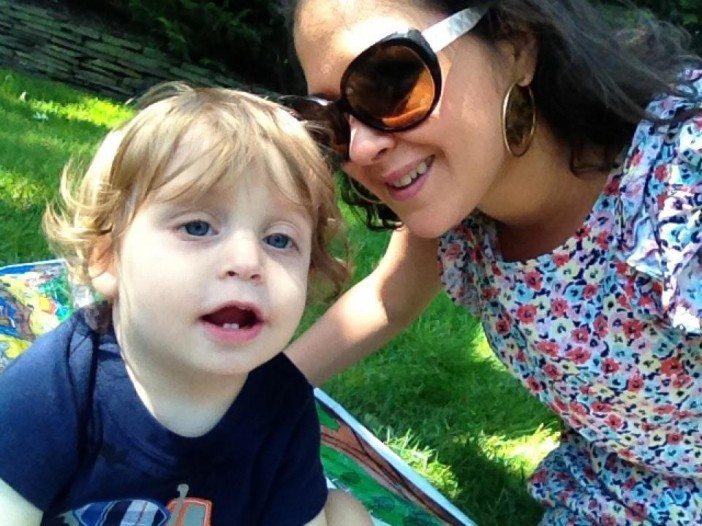Five Questions For Speech Language Pathologist Jocelyn Wood

Jocelyn Wood is a speech language pathologist and orofacial myofunctional therapist who moved recently from neighboring Kensington to Ditmas Park, and offers home-based therapy as well as SAT/ACT prep (she first found her way into SLP work through her love of helping others learn) in both neighborhoods as well as Midwood, Windsor Terrace, and Park Slope.
When she’s not in a session or discussing the physical and statistical considerations of her work on her blog, you can probably find her getting coffee at Qathra or weekend brunch at The Farm or Mimi’s Hummus–or simply on a walk to photograph the local architecture. Overall, Jocelyn says, “I could not be happier to be a part of this community.”
Since we’re a bit more familiar with the joys of local grub and Victorian houses than we are speech therapy, we asked Jocelyn if to give us the nitty-gritty on her work.
How long have you been working as a speech language pathologist, and where did you study?
I graduated from Hofstra University with my Master’s in Speech Language Pathology in 2008. Since then, I have worked mainly with pediatrics, first on Long Island and now in Brooklyn.
I am one of those people you mention who hears “speech language pathologist” and automatically thinks lisps and stutters, but what are some other examples of common issues you treat?
There is so much more to the field of speech-language pathology, and you are definitely not alone thinking that we only treat /r/, /s/ and people who stutter. A lot of my work has been bringing more attention to the field of feeding and swallowing disorders.
Many people are surprised to find that work can begin with babies from birth, helping parents find better positioning for feeding, or helping children coordinate breathing and eating. Feeding therapy can continue into childhood to help parents find strategies to deal with their picky eaters. Speech-language pathologists trained as orofacial myologists are also able to help people with jaw pain and sleep disorders!
Who can benefit from working with you who might not yet realize a speech language pathologist would be helpful?
Everyone knows someone who can benefit from speech therapy. Whether you have a concern about your child’s early speech and language milestones, or you are unsure about the variety of foods your child is eating, a trained SLP can help you find the answer. We work with thumb-suckers, droolers, and of course, those kids who have difficulty saying certain speech sounds.
For school age and adolescent children, an SLP can work with them on developing focus, attention, writing, reading comprehension and language/listening skills. Adults can turn to an SLP if they are experiencing jaw pain associated with TMD (temporal mandibular joint disorder) or want help eliminating an accent.
Your site mentions an experiment you conducted with kids hearing sounds in different languages. Can you explain that in a little more depth–and how do the results affect your work today?
Bilingual language development has always been interesting to me. In my earlier research studies, I found that children are capable of discriminating between various sounds and tones until nine months old. After that time, babies begin to “hone in” on the sounds native to their language.
As a bilingual speech language pathologist, I am often asked for my opinion on raising bilingual (or trilingual!) children. Based on what I have found, it is best to start early and be consistent. This can mean exposing children to various sounds via recordings, or speaking to your children in a variety of environments, so that they are receiving constant input to further develop their linguistic repertoires.
What makes individual therapy better for some people, and group therapy better for others?
As my practice is home-based, most of my therapies are individual. Group therapy is more appropriate for children who have similar goals (i.e. two or three children who need assistance with an /s/ sound). I also provide social skills training for children on the autism spectrum when their skill levels and needs are similar.
If you think you or someone you know could benefit from working with Jocelyn, you can check our her website for more info, then get in touch at 516-286-0070 or jocelyn.m.wood@gmail.com. jocelyn.m.wood@gmail.com.
Photo via Jocelyn Wood



